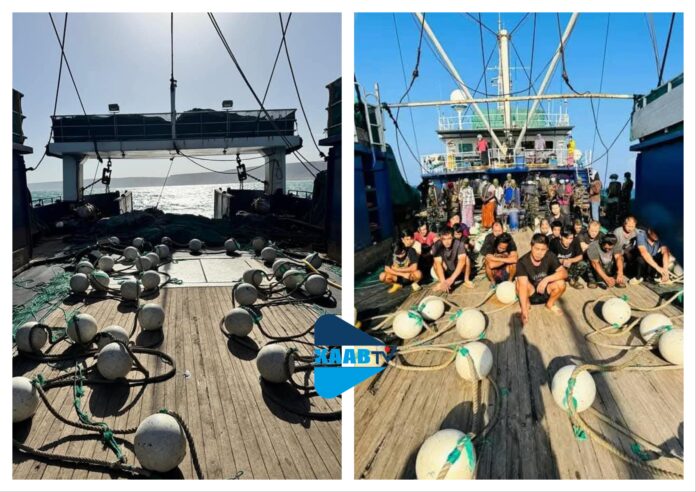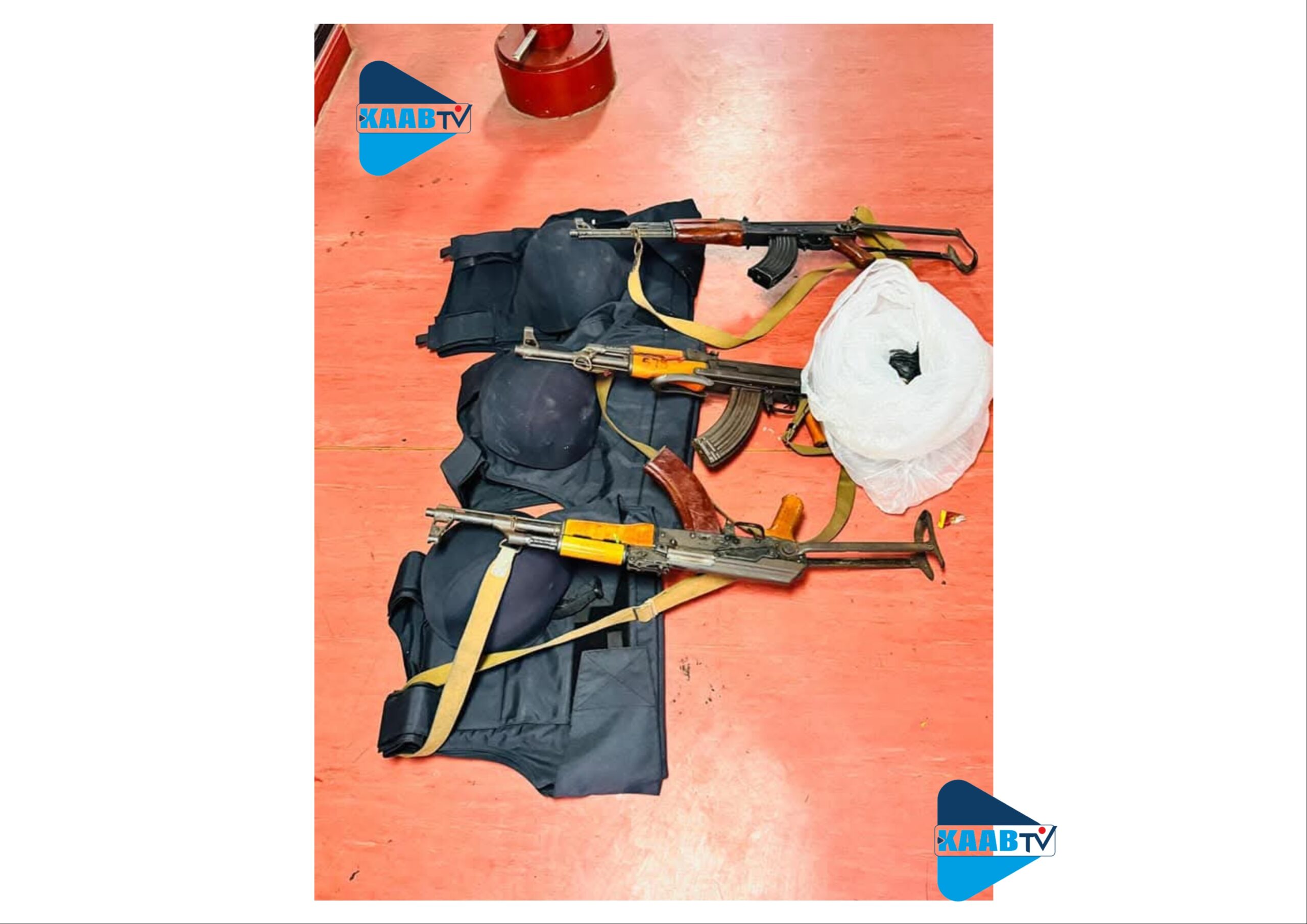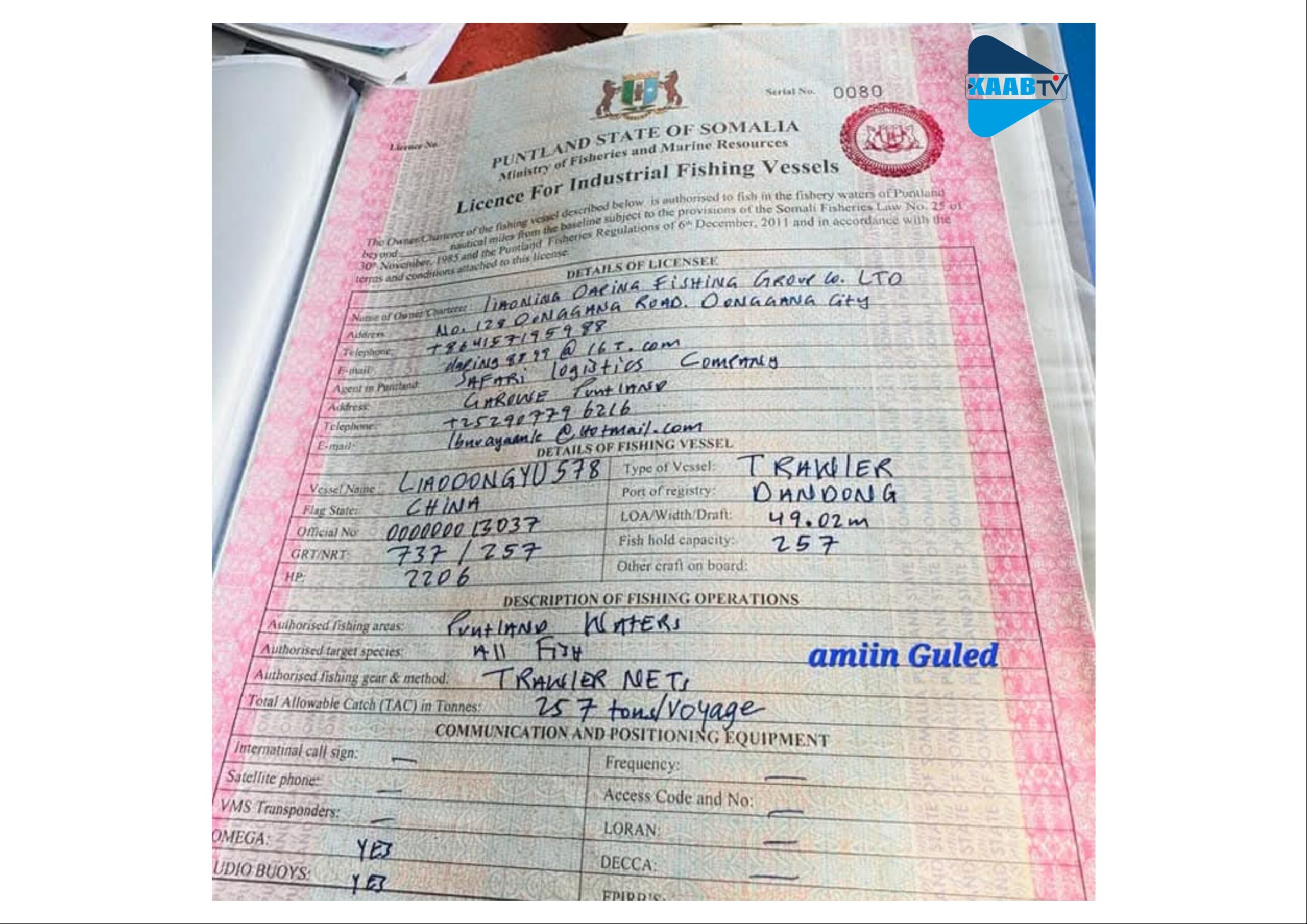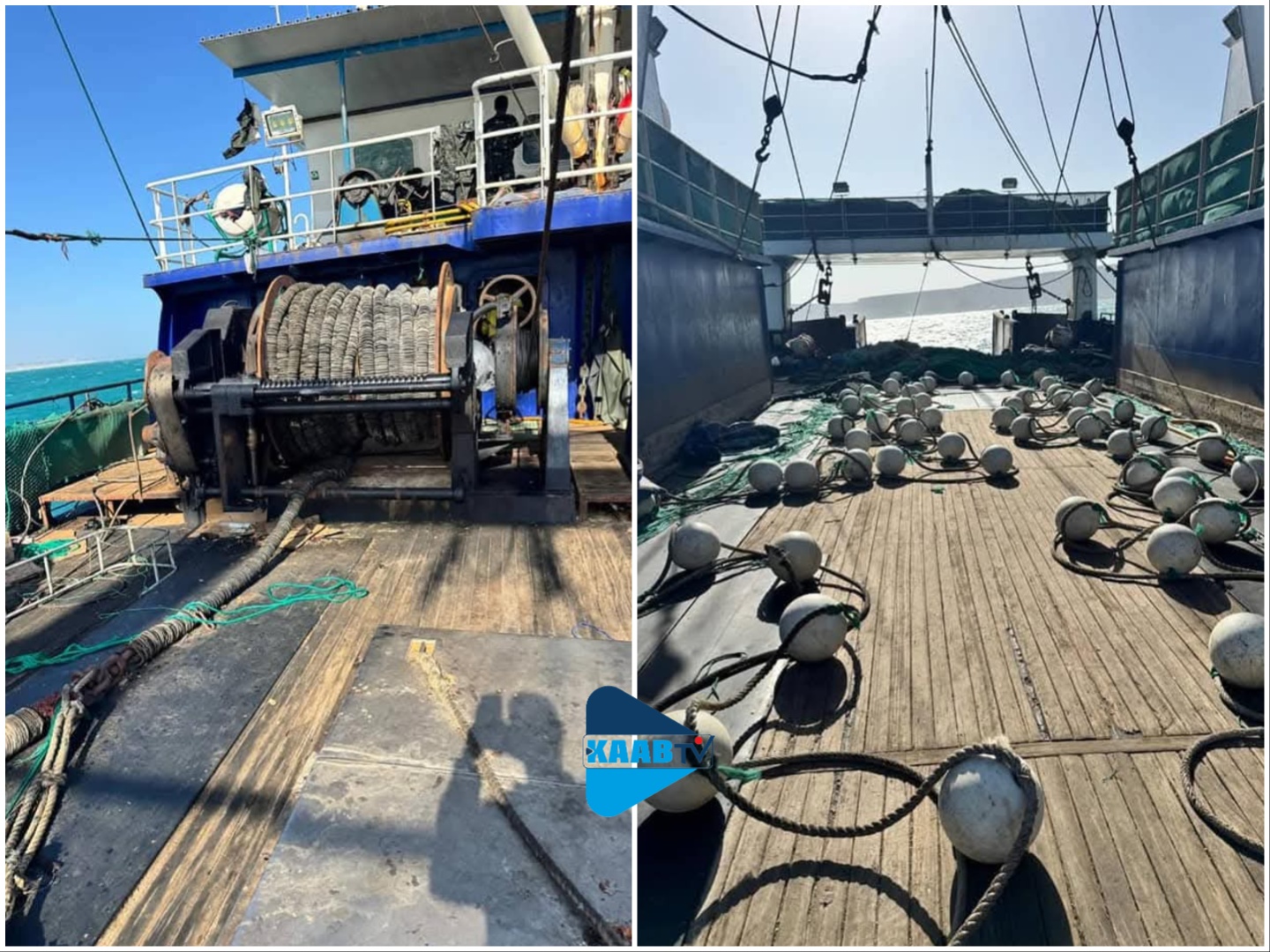
China Paid $2M Ransom to Free Fishing Trawler Hijacked by Somali Security Guards in Puntland

The Chinese embassy in Somalia announced the release on the same day but provided no details about how it was achieved.
Kaab TV conducted an in-depth investigation, uncovering critical details about the hijacking and subsequent release of the vessel and its crew.
The gunmen had taken control of the trawler in late November 2024, seizing it near Xaafuun, off Somalia’s northeastern coast.
Puntland officials revealed to Kaab TV that the hijackers included three of the vessel’s own security guards.

The ship, which was registered in Puntland, had expired documentation at the time of its capture.
Registration documents obtained by Kaab TV indicate that the LIAO DONG YU 578 was licensed by the Puntland Ministry of Fisheries and Marine Resources in September 2020, but the license expired in September 2024.
The hijackers initially demanded a $10 million ransom from the Chinese company that owned the vessel.
Speaking to Kaab TV, one of the hijackers, a local fisherman from Eyl identified only as Hassan, explained their motives.
He accused Chinese vessels of overfishing and threatening the livelihoods of local fishermen, stating that the captured vessel and others like it encroach on Somali waters, often with expired or no valid licenses.

"These Chinese vessels, many of them operating illegally, come and steal our fish,” Hassan told Kaab TV.
He also mentioned that the LIAO DONG YU 578 was just 30 miles from the coast when it was seized, significantly affecting the fish stocks relied upon by Eyl’s predominantly fishing-dependent community.
Before the hijacking, Somali fishermen in Raas Caseyr had protested and urged the Puntland government to address the presence of illegal foreign fishing vessels, particularly those from Asia, including China.
"Nobody listened to these calls,” Hassan said, justifying the hijacking of the LIAO DONG YU 578.
The trawler, which had a capacity of 257 tons, was allowed to catch "all fish” under its expired registration, according to the documents Kaab TV reviewed.
Further investigation revealed that the vessel was also registered with the China Overseas Fishing Association in Dandong.
Negotiations for the release
Negotiations for the release of the vessel were mediated by clan elders and the Puntland government, with the direct involvement of Chinese Ambassador Wang Yu.
On January 9, 2024, the ambassador traveled to Bosaso, Puntland’s main port city, where he met with Puntland President Said Abdullahi Deni.
The Chinese embassy later posted about the meeting on its X (formerly Twitter) account.

| PHOTO/ Chinese Embassy/X.
According to Puntland government sources, Ambassador Wang Yu delivered the ransom payment in cash, amounting to $2 million, which was handed over to the hijackers through clan elders.
The negotiations ensured the safe release of the crew and the vessel.
Clan elder Yasin, who participated in the discussions, confirmed that the hijackers agreed to release the vessel and its crew peacefully in exchange for the government promising not to pursue them after the ransom was paid.
"The government accepted not to pursue any case after the ransom payment, and the hijackers ensured that all Chinese crew were safe during their abduction,” Yasin told Kaab TV.
Despite the ransom payment, the Chinese embassy condemned the hijacking in its January 13 statement, calling it a "vicious action” that threatened the safety of the crew and international navigation security.
However, the statement made no mention of the ransom payment.

The LIAO DONG YU 578 has since left Somali waters, but the broader issue of illegal, unregulated, and unreported (IUU) fishing remains unresolved.
Chinese fishing fleets operating without proper licenses continue to be a major concern for Somali coastal communities.
With one of Africa’s longest coastlines (approximately 3,300 kilometers) and rich marine resources, including tuna, lobster, and other valuable species, Somalia is a hotspot for exploitation by foreign fishing fleets.
Questionable fishing agreements between Chinese companies and Somali authorities, particularly in Mogadishu, Puntland, Galmudug, and Jubbaland, often lack transparency and are criticized as exploitative.
The rise of Somali piracy in the early 2000s was partly fueled by illegal fishing and toxic waste dumping by foreign entities.
While some Somali pirates initially framed their actions as protecting national waters, this narrative evolved over time.
Source: Kaab TV
Leave a comment
- Popular
- Rated
- Commented
04/11/2021 - 11:05:02
28/05/2024 - 15:44:10
01/03/2021 - 09:00:37
Opinions
18/05/2025 - 16:26:37
15/05/2025 - 20:16:04
Politics
05/06/2025 - 13:42:50
Terror Watch
07/06/2025 - 21:36:45
Press Releases
05/06/2025 - 12:21:21
02/06/2025 - 21:29:33
 0
0 




































China Paid $2M Ransom to Free Fishing Trawler Hijacked by Somali Security Guards in Puntland
Eyl Nugaal - A Chinese-owned trawler, LIAO DONG YU 578, and its 18 Chinese crew members were released on January 13, 2025, by Somali gunmen who had hijacked the vessel near the coast of Eyl in Somalia's Puntland state, Somalia's Kaab TV rep